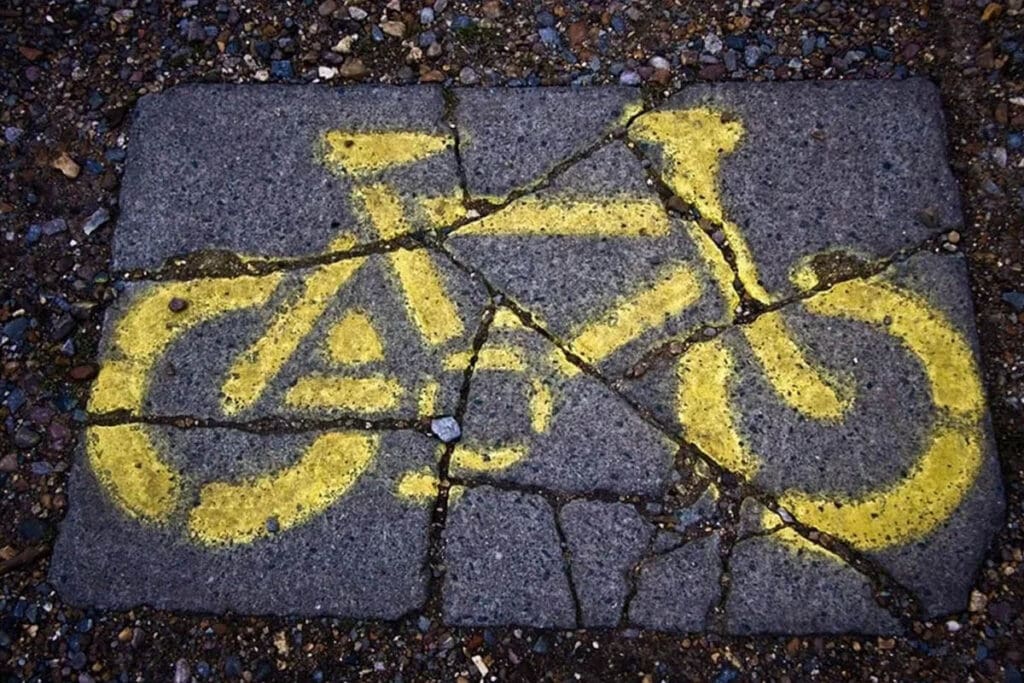Concrete Changes, Not Changes to Concrete, The Secret to Road Safety for All

Adelaide, SA
This column by Bicycle SA CEO Brett Gillett appeared recently on the advocacy group’s website. We thought it was worth reproducing in the Micromobility Report, with Brett’s permission.
If you drink and drive, you’re ‘a bloody idiot!’. If you throw a wild swing at someone, you’re not delivering a ‘king hit’, you’re inflicting a ‘coward punch’.
These powerful campaigns changed public perception of once tolerated – certainly not reflexively condemned – behaviour virtually overnight and Australian society is now far better for it.
“The all-too-common behaviour of denying the humanity of cyclists and making jokes about killing them – jokes that would not be tolerated if made about any other demographic – makes the violence being inflicted upon cyclists far too easy and far too common.”
Now it is time to take the same giant step forward on the roads, to remedy what far too often is entirely reprehensible behaviour towards our most vulnerable road users by people who – like the coward punchers – will likely never feel the sting of their own actions.
Attacks – deliberate, malicious attacks – on cyclists are made much easier for those predisposed to do so by the sadly prevailing public attitude that bike riders are “cockroaches on wheels” as former journalist and federal senator Derryn Hinch sweepingly described bike riders on television in 2013.
Teaching military recruits to dehumanise the enemy by giving them offensive names makes it easier for well-adjusted young people to kill other human beings. Similarly, the all-too-common behaviour of denying the humanity of cyclists and making jokes about killing them – jokes that would not be tolerated if made about any other demographic – makes the violence being inflicted upon cyclists far too easy and far too common.
It is time for it to stop!
We need our own ‘coward punch’ moment. A public campaign to leave no one in doubt that those who bully, abuse, attack or disregard the safety of vulnerable road users will be held in contempt by the rest of society and will face the full force of the law.
Behaviour change among Australian motorists should be the gold standard, the first port of call, the top of the agenda of all active transport road safety campaigns.
Because while selective speed limit reductions and separated infrastructure in areas prone to greater walking and cycling traffic are fine ideas, by definition they are highly localised solutions.
Conversely, behaviour change, attitude adjustment or societal maturity – call it what you will – would provide benefits across the board, on any road or region and in a 110kmh, area the same as in a school speed zone.
The localised solutions are effective and have been proven so across the world. But it is impossible for them to be instituted across the entire transportation network of our sprawling cities and throughout the vast area of South Australia. But, barring freeways, cyclists have the right and the need to use these roads the same as any other road user.
And, like any other road user, they have the right to feel safe while doing so. Feeling safe on the road is one of the biggest obstacles to getting more people to ride, which benefits all South Australians, including those who will continue to drive.
Knowing those around you see you, feel compassion and responsibility instead of animosity and intolerance and will prioritise your safety ahead of five seconds of time can only increase those feelings of safety and confidence, meaning complicated, expensive, often controversial solutions to road safety become less urgent and less frequently necessary.
“The reflexive animosity towards cyclists and indifference to their safety is just the latest prejudice that must be consigned to the dustbin of history.”
We don’t need to reinvent the wheel, we just need to acknowledge that we all use many different types of wheels to make our way in life and all of us, regardless of size, speed or appearance, have the same right for consideration on our travels and to expect to reach our destination safely.
Bicycle SA will continue to advocate for more and better safe cycling infrastructure but we cannot ignore the reality that the existing transport environment could be made better, safer, calmer and more inviting for all its users if we could replicate previously successful campaigns that have united us rather than entrenched division.
Australia has matured a great deal over the decades. The banter, behaviour and prejudices that were prevalent and uncontroversial 30 or 40 years ago are now reviled and rightly so.
The reflexive animosity towards cyclists and indifference to their safety is just the latest prejudice that must be consigned to the dustbin of history. That time is now and the fervour to make it so must match that of those who so successfully advanced our community in years past.
And just like in years past, the benefit of doing so will be shared by all of us.
Brett Gillett is the CEO of Bicycle SA
